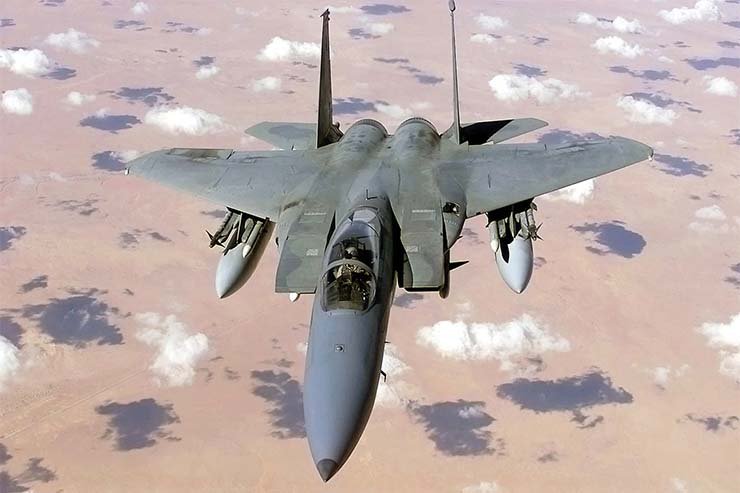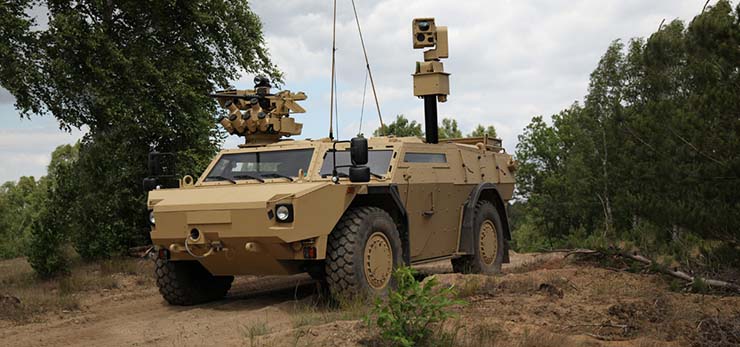
Qatar currently finds itself in a precarious geopolitical position, both regionally and internationally. Wedged between regional powers (Iran and Saudi Arabia) vying for hegemony and international influence, the small Gulf state is attempting to overcome a number of structural weaknesses in order to catapult itself onto the world stage and protect its regional interests. These ambitions are being pushed by a determined ruling elite whose influence has begun to penetrate Western democracies thanks to its economic independence and vast wealth.
The country, which has a very small population (330,000), has made its fortune in natural resources, notably natural gas. This has put it in direct competition with Iran and the extreme Wahhabism of the Sunni Saudi state, forcing Qatar to play a delicate balancing act in terms of regional stability. This uncertain geopolitical ecosystem has led Qatar to seek numerous international alliances with major players, notably with the United States and various European countries. These alliances can be better understood through the multitude of defence procurement agreements signed by the Qatari military.
Interventional partnerships
In the period 2018-2022, Qatar was the world’s third-largest arms importer, according to SIPRI. The principal provider of military hardware to the country has been the United States. In January, US President Joe Biden designated the country a major non-NATO ally, underlined by the country’s approval of the potential $1 billion sale of the FS-LIDS anti-drone system to Qatar, in addition to existing contracts involving F-15 fighters and the reinforcement of its pre-deployment initiatives in Qatar to strengthen its regional geopolitical position.
This deployment is designed to give the US 360° protection against threats from Iran. The strategy has included the deployment of F-22s and a squadron of “core space operators” from the newly formed US Space Force to the Al-Udeid Air Base. Moreover, around 8000 US troops were deployed to Qatar during the recent football World Cup. By stationing troops and squadrons in the Gulf state, the US is tacitly demonstrating its willingness to intervene militarily if the independence of the Emirate is threatened.
Qatar enjoys a similar relationship with France. The Qatari military has numerous bilateral procurement agreements with France, including the acquisition of 72 Dassault Rafale fighter jets to boost the development and modernisation of its air force. Moreover, Qatar and France have regularly held joint naval exercises, most recently in 2017 and 2023 under the supervision of HE Chief of Staff of the Armed Forces Staff Lieutenant General (Pilot) Salem bin Hamad bin Mohammed bin Aqeel Al Nabit.
A commercial partnership
Another state the Qatari military has long relied on is Germany. This relationship differs somewhat from the aforementioned partnerships with the US and France as it is principally commercial in nature. Germany has long had a very rigid approach to military deployment in foreign theatres, and strict rules on arms exports if they fear they might be used in an aggressive fashion.

Although this deep-rooted strategy has been reviewed since Russia’s aggressive invasion of Ukraine, Germany’s reluctance to deploy expeditionary forces remains, meaning that an interventionist relationship with Qatar has never developed in the same way as it has between Qatar and the US. For such a strategy to be deployed, Germany would need surefire legitimacy in the eyes of its domestic audience. There are a few examples of this. The Bundeswehr’s recent operations in the Sahel is one, but Germany is set to pull out of Mali by May 2024, with Defence Minister Christine Lambrecht underlining the lack of parliamentary elections as a condition for the withdrawal. She was undoubtedly playing to domestic sensibilities.
Qatar’s persistence with defence contracts with Germany in spite of its resistance to interventionist deployments is therefore quite surprising. The quality of German industry cannot be denied, but if the Bundeswehr will never be deployed on the peninsula, surely Qatar’s strategy for interoperability between the different arms of its military would be at risk. The hybrid use of French, American and German armaments would cause a logistical nightmare, with no operational added value regarding the latter, given the absence of German boots on the ground alongside Qatari forces.
Qatar’s Land Army is currently equipped with some of the most modern German-made combat vehicles: namely Leopard 2A7+ main battle tanks, PzH 2000 howitzers, Dingo armoured vehicles and Fennek reconnaissance vehicles. These combat vehicles’ undoubted modernity and effectiveness have been put under the microscope in recent conflicts. In Ukraine, for example, Kyiv has complained about the unreliability of the PzH 2000 howitzer when it comes to maintenance and accessing spare parts, which has severely hindered its deployability in certain combats and its overall agility.

For Qatar, issues surrounding the maintenance of German-made combat vehicles could be exacerbated by Germany’s strict rules regarding arms exports, variable in their scope. While examples of Germany’s embargo on the export of war materiel to Saudi Arabia and the UAE on humanitarian grounds regarding the war in Yemen are well documented, they are not isolated. In 2019, Germany also suspended its arms sales to Turkey, as the latter used its own Leopard II A4 in its operations against Kurdish forces in northeastern Syria. Beyond cross-border disputes, Germany even goes so far as to justify its embargo decisions on the basis of internal affairs in its client countries, as was the case with Saudi Arabia following the assassination of Kamel Khashoggi. Finally, it must be emphasised that these decisions are not merely cyclical, but reflect structural debates in public opinion and in the German parliament, and are based on particularly restrictive legislation, such as that establishing controls in buyer countries to ensure the traceability of small arms, for example.
In such conditions, were the Qatari military to get involved in regional conflicts deemed questionable by the German public, the Qatari military could find itself unable to move forward.
References
- https://www.iemed.org/publication/qatars-role-in-the-geopolitical-scenarios-of-the-middle-east-and-north-africa/
- https://www.sipri.org/media/press-release/2023/surge-arms-imports-europe-while-us-dominance-global-arms-trade-increases%23:~:text=Qatar’s%2520arms%2520imports%2520increased%2520by,Italy%2520(8.4%2520per%2520cent).
- https://www.whitehouse.gov/briefing-room/presidential-actions/2022/03/10/memorandum-on-the-designation-of-the-state-of-qatar-as-a-major-non-nato-ally/%23:~:text=March%252010,%25202022-,Memorandum%2520on%2520the%2520Designation%2520of%2520the%2520State%2520of,a%2520Major%2520Non-NATO%2520Ally&text=By%2520the%2520authority%2520vested%2520in,1961,%2520as%2520amended%2520(22%2520U.S.C.
- https://www.dsca.mil/press-media/major-arms-sales/qatar-fixed-site-low-slow-small-unmanned-aircraft-system-integrated
- https://www.flightglobal.com/defence/qatars-first-f-15s-en-route-to-middle-east/146196.article
- https://www.afcent.af.mil/News/Article/1890497/f-22s-deploy-to-qatar-for-the-first-time/
- https://www.middleeastmonitor.com/20200923-us-space-force-makes-first-foreign-deployment-to-qatar/
- https://www.qatar-tribune.com/article/71802/FIRSTPAGE/Qatar-France-hold-joint-naval-exercise
- https://www.gulf-times.com/article/656348/qatar/chief-of-staff-witnesses-briefing-on-joint-qatari-french-naval-drill
- https://www.dw.com/en/what-happens-next-for-the-bundeswehr-in-mali/a-64224644
- https://www.armyrecognition.com/weapons_defence_industry_military_technology_uk/qatar_is_now_one_of_the_most_well-equipped_military_forces_in_the_middle_east.html
- https://www.armyrecognition.com/germany_german_army_artillery_vehicles_systems_uk/pzh_2000_155mm_self-propelled_howitzer_technical_data_sheet_specifications_pictures_video.html
- https://www.armyrecognition.com/germany_german_army_wheeled_armoured_vehicle_uk/fennek_kmw_4x4_reconnaissance_armoured_vehicle_technical_data_sheet_specifications_pictures_video.html
- https://eurasiantimes.com/ukraines-germany-supplied-pzh-2000-howitzers-are-breaking/
- https://eurasiantimes.com/germany-approves-arms-sale-to-saudi-arabia-uae/
- https://www.dw.com/en/german-government-bans-weapons-exports-to-turkey/a-50807998#:~:text=The%20German%20government%20is%20halting,against%20Kurds%20in%20northern%20Syria.&text=German%20Foreign%20Minister%20Heiko%20Maas,stopping%20arms%20exports%20to%20Turkey.
- https://www.aljazeera.com/news/2021/2/26/timeline-of-the-murder-of-journalist-jamal-khashoggi
- https://www.dw.com/en/opinion-ukraine-crisis-germany-needs-an-open-discussion-about-arms-exports/a-60790033
- https://www.ruptly.tv/en/videos/20230420-046-germany-the-result-would-not-be-peace-mps-debate-bundestag-right-to-veto-arms-exports-to-ukraine
- https://www.bmwk.de/Redaktion/EN/Dossier/export-controls-for-military-equipment.html
– The writer is a defence and security industry consultant having varied experience working with medium and large companies majorly in European market. The views expressed are personal and do not necessarily reflect the views of Raksha Anirveda








